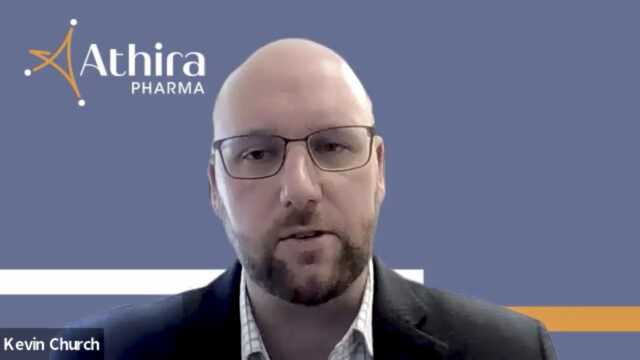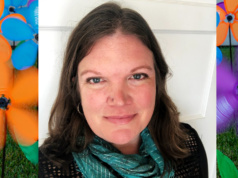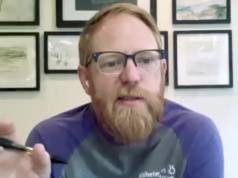Suzanne: And welcome back everyone to Answers for Elders Radio Network. And we are here with Kevin Church who is the Chief science officer of Athira Pharma, who is at the cutting edge of Alzheimer’s research and just how we’re looking forward. And I truly believe personally that you guys are finding out so many amazing things that the world doesn’t even know about yet. And that’s really why I wanted you to have on the show. And so Kevin, you know a lot about Alzheimer’s, but there’s a lot of things that medical science is still learning and, tell us a little bit about what happens to the brain when somebody is diagnosed with Alzheimer’s disease.
Kevin Church: Yeah, that’s a great question and it’s a great point. We are still learning. There’s still so much we’re learning a lot, but there’s still so much to know about Alzheimer’s, but there’s been a lot of work really in the last 20 years and particularly the last few years that have really shed some light on what’s going on. And Alzheimer’s is a very complex disease. I think that’s the first thing I should say. And so there’s a lot of different things going on and most people know about the amyloid plaques. So these are essentially clumps of sticky protein that abnormal should not be there in that way and in that amount. And so these clumps of sticky proteins get built up, and exactly why is not clear. That’s, so that’s still a question that’s unanswered. But these clumps build up, and they can be toxic to the cells, to the nerves, and they get in the way of normal nerve communication, and then they eventually start causing the nerves to die. And so that leads to the neuro-degeneration that we see in Alzheimer’s. And so that’s a critical component of what’s going on in the brain.
There are other proteins that also build up. One is Tau, you’ll hear a lot about Tau in the Alzheimer’s community. It also forms these clumps that are abnormal. And then there’s a lot of new research on inflammation being a, a major contributor to the issues to brain health in in Alzheimer’s. So those are in a at a high level. Those are kind of what’s going on in the brain of someone.
Suzanne: These clumps obviously interferes with nerve endings, but also connections is that really what happens and it usually happens with recent memory, correct? Long term memory is the last to be affected. Is that true or I, I I’m far from the expert? I know a little bit to be dangerous here.
Kevin Church: No, that’s true. It seems that the long term memory or memories are the last to go. Exactly why that is, it’s,hard to say, but there seems to be early on in the disease, short term memory is usually one of the earlier symptoms I think people start to notice. Ok, I can’t, where did I put my keys? What is the name of this person? I just mean things like that. That are very frequent are kind of the first things to go about.
Suzanne: I do that a lot.
Kevin Church: Well, I mean, I do it too. But that progresses to a point where it becomes problematic. So the clumps, they can interrupt the communication between the nerves and that can interrupt memory formation which is obviously why you have some, some memory recall issues. But I think what’s important to note it to note in, in Alzheimer’s is that regardless of the, the clumps of protein, the ultimate problem is that the nerves are not working properly and that they’re dying. And so anything that can be done to prevent that from happening, we think it could be very beneficial.
Suzanne: And so as you have your new drug, which I’m not gonna pronounce [fosgonimeton] because I’m gonna make mess it up bad, but what it does is it replenishes nerves and provides nourishment to the brain, right?
Kevin Church: This is an experimental therapeutic, of course, we’re still in clinical testing. So there’s still much to learn about what it could actually do and in human patients. but from our preclinical studies, yeah, it’s one of its main ways that it works is that it, it helps keep cells alive, essentially, even in the face of these challenges from these toxic clumps of proteins or inflammation. It protects the cell, it protects the nerve, and it can help reestablish connections that have been lost due to the presence of these proteins or other cells or damage. That’s, that’s happened. So that’s those are some of the main… and I will mention we’ve also seen it help in inflammation, actually reduce inflammation in our pre clinical studies. So again, a lot to learn here, but we are, we are encouraged by our, what we’ve seen. Preclinical.
Suzanne: Absolutely. And obviously, by getting diagnosed early, you have a greater chance of sustaining your awareness and your full mind activity longer. That’s, is that correct?
Kevin Church: We think that’s going to be important obviously for the future, as new treatments come out that might, might. Right now, we have limited treatment options for those that are diagnosed early or in mid-stages as we’re starting to see. And there’s a lot of excitement in the field, kind of for the first time in a long time iis that we think earlier could be better and then if you can start treatment earlier, maybe preserve more of the brain function longer, obviously, that would be a better outcome. So it’s gonna continue to be important.
Suzanne: And certainly with the whole process of just greater awareness, with people understanding that some of these things we may think, “Oh, that’s just dad,” or he tells the same story over and over again. Those things like memory loss or the short term, things like that on a consistent level is not normal. Is it on a consistent level?
Kevin Church: No. And I would just, obviously… if there’s any concern about that, talk to your doctor. I’m not giving medical advice. I’m not a medical doctor, I’m a researcher. But, usually it would go along with other symptoms behavioral changes, and it would be interrupting normal function. Fforgetting things once in a while is totally normal. But if there’s any concern that it’s happening too frequent, or there’s other symptoms, conversation with your doctor would be warranted.
Suzanne: Absolutely. So if you’re an adult child, and maybe have a senior loved one that may be experiencing, or may have just been recently diagnosed with Alzheimer’s disease, what are your options as an adult child? Can you inquire about the trials? Can you do things to help facilitate?
Kevin Church: I would recommend to anyone actually being a caregiver, or to have very candid conversations with the doctor about, and if there’s interest in clinical trials or things like that, then that’s the first conversation that should be had is, is obviously with the patient and then with the doctor, primary care physician, or specialist, just to see if it is right. Obviously, we need volunteers in clinical trials to further the science, and bring new treatments to the patients.
Suzanne: And how do people get information about the trial?
Kevin Church: So the the the best way is obviously a discussion with the doctor, or a neurologist if they’re at a specialty clinic, they usually are aware of ongoing clinical trials. Also https://clinicaltrials.gov. You can find any clinical trial in your area. If you’re interested in our trials, you can go to our website at https://www.athirapharma.com or https://www.lift-adtrial.com/. And really just conversations with your doctor .
Suzanne: Perfect. So, Kevin, you and I are going to be back and we’re going to talk a lot more about clinical trials, how you as a comp care partner can help your loved ones right after this.











